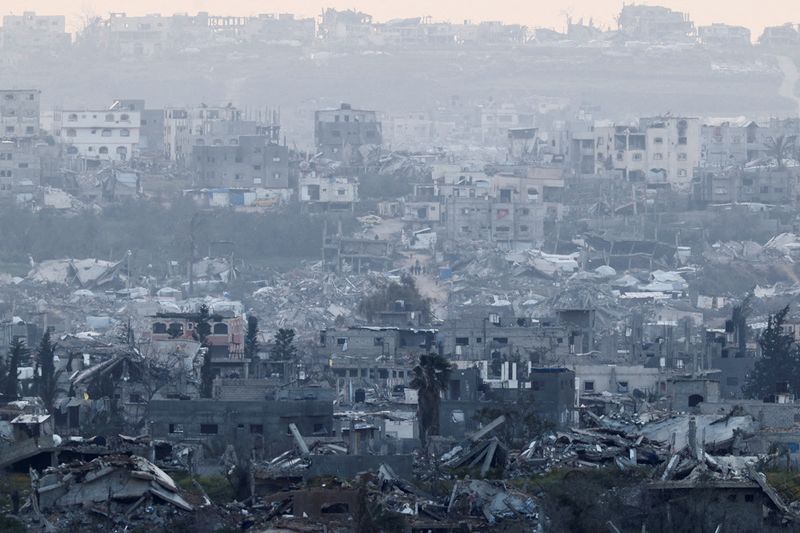Hamas Reviews US Ceasefire Proposal Amid Israeli Military Operations
By Nidal al-Mughrabi and Jana Choukeir
CAIRO/DUBAI (Reuters) – On Friday, Hamas announced that it is considering a ceasefire proposal from the U.S. as Israel escalates its military actions to compel the Palestinian militant group to release the remaining Israeli hostages.
The U.S. special envoy, Steve Witkoff, introduced a “bridge” plan last week, aiming to extend the ceasefire through April, beyond the Ramadan and Passover holidays, to facilitate discussions for a lasting end to the conflict.
After Israel effectively abandoned the two-month truce, Defence Minister Israel Katz declared that military operations, including air, land, and sea strikes, would intensify, with plans to relocate civilians to southern Gaza. Katz emphasized that the campaign would persist until Hamas releases additional hostages and faces complete defeat.
Despite significant Israeli airstrikes resulting in the deaths of high-ranking Hamas officials this week, sources indicate that Hamas has shown resilience, continuing its governance amidst considerable losses. The group is reportedly weighing Witkoff’s proposal and other strategies aimed at negotiating prisoner releases, concluding the war, and ensuring Israel’s full withdrawal from Gaza.
An anonymous Palestinian official mentioned that Egypt has also proposed a bridging plan, though Hamas has not yet responded. This proposal reportedly includes establishing a timeline for the release of hostages along with a deadline for a full Israeli withdrawal, backed by U.S. guarantees. Initial approval has been indicated from the U.S., with responses from Hamas and Israel anticipated later today.
After a two-month period of relative calm, Gazans are once again fleeing due to a renewed Israeli military campaign, which has also led to a new disruption of aid supplies. Katz warned that the longer Hamas delays in releasing hostages, the more territory it would lose, with 59 out of the original 250 captured during Hamas’s attack in October still held in Gaza, with 24 believed to be alive.
The United States has attributed the resumption of hostilities to Hamas’s actions, with U.S. ambassador Dorothy Shea claiming that every death since the escalation of the conflict could have been avoided had Hamas accepted the proposed ceasefire plan. Meanwhile, the humanitarian situation in Gaza is dire, with UNRWA stating it only has enough flour for distribution for the next six days and warning that the ongoing blockade has severely affected food prices and supplies.



